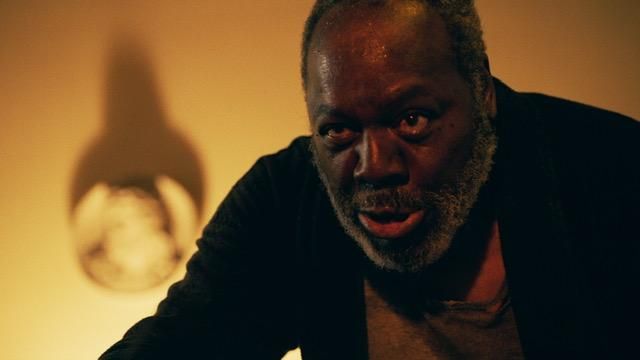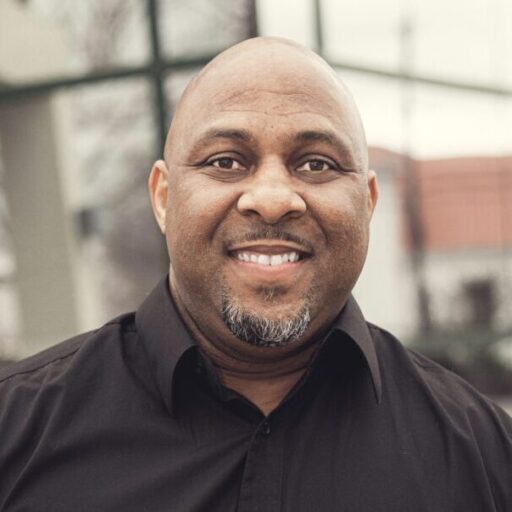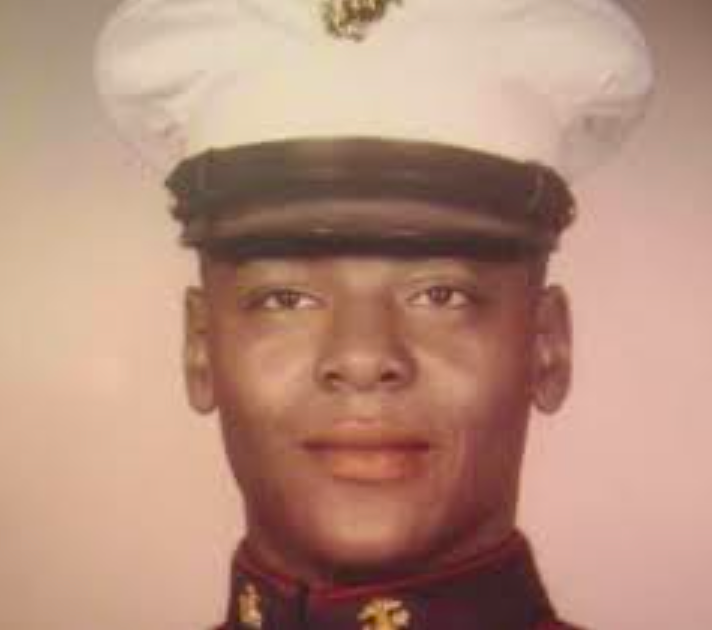
While removing his LifeAid necklace before going to bed, 68-year-old retired Marine Kenneth Chamberlain Sr. accidentally pressed the alert button. Sound asleep, he did not hear the LifeAid callback. Officers were sent to do a welfare check on Chamberlain — a move that would cost him his life.
Chamberlain had refused to open the door. Police broke it down and after a series of events, an officer shot Chamberlain. He died later in the hospital.
Nov. 19 marks the 10-year anniversary of that tragic evening. “The Killing Of Kenneth Chamberlain,” a must-see film, is now available on YouTube, Google Play Movies & TV, Vudu, Apple TV and Amazon Prime.
Director David Midell released the award-winning film in 2019 detailing the tumultuous events of that night. He selected a talented cast for “The Killing Of Kenneth Chamberlain” to reenact the welfare check that went wrong that night.
Chamberlain suffered from mental illness due to his time in the military. His paranoia and distrust can be heard throughout the film from actor Frankie Faison as well as from real LifeAid recordings. Morgan Freeman, one of the executive producers, used his status to push the project.
Midell takes Zenger behind the creative thought process in making this film.
Percy Crawford interviewed David Midell for Zenger.
Zenger: Busy times for you. How is it going?
Midell: Good. It has been busy. The film has been out for several weeks at this point, and we keep building momentum. I think it’s been great for the Chamberlain family too. This has been a bright spot in their pursuit of accountability for what happened.
Zenger: There were no criminal charges against the cops in White Plains, New York, who killed Kenneth Chamberlain Sr. Any new revelations?

Midell: There have been some positive developments recently with the case. Initially, none of the officers were charged or indicted. But recently, I think in June of 2020, there was a three-judge panel that actually decided to overturn part of the original judge’s decision that allowed the officers to walk away without any consequences whatsoever. There is a possibility that there will be consequences on the civil end. A couple of months ago, the new district attorney in Westchester County announced that an independent review of the case is going to be conducted. Depending on what the review of the case yields, I believe there is a possibility that the criminal case could be reopened.
Zenger: What is the Chamberlain family seeking?
Midell: Kenneth Chamberlain Jr. has really been the primary public face of the fight for justice. And what he says is, it’s really too late for justice at this point, he’s just looking for some type of accountability. I think after 10 years his perspective has been, it’s too late to really achieve any type of justice. He’s just really looking for some form of accountability and acknowledgement that wrongdoing occurred.
Zenger: Your compassion for mental health stems from long before you heard about Chamberlain and the aftermath of his mental health from serving as a Marine. Obviously when you heard about his death, it triggered something.
Midell: It did. That was one of the reasons why this case in particular resonated with me. I taught special education for several years. I worked with students with developmental disabilities and behavior and emotional disorders, and I’m also on the autism spectrum. I’ve seen crisis situations spiral completely out of control like it did in this case.
And I’ve also seen crisis situations get resolved smoothly and safely where everyone feels respected, everyone’s feelings are valued, and there’s empathy going back and forth. Having experience of seeing crisis situations unfold in a way that they resolve smoothly and safely, and in a way that they spiral completely out of control, really made this story resonate on a personal level with me.
Zenger: This was simply a welfare check because Chamberlain inadvertently activated his LifeAid alarm. In short, the cops that were dispatched to check on him ended up killing him. How does a welfare check go so wrong?

Midell: It’s so hard, because there are many different stories that have emerged about what took place on Nov. 19, 2011. There is the story that the police officers told — their version of events. Then there is the version the residents of the building have communicated. And then there is also the forensic evidence that tells a third story. There are some aspects where all three of those stories line up. And there are parts where they diverge. The police officers’ story doesn’t jibe with what the residents reported. The police officers’ story doesn’t jibe with what forensic evidence suggests.
Being that none of us was there on that day, we can’t put ourselves inside anyone’s head to know what they were thinking or feeling. But my sense is that… what happens so much in America and around the world when it comes to policing, Kenneth Chamberlain Sr. seemed like he had three major strikes against him in the eyes of the police officers, even before they knocked on his door. He lived in a low-income area, he had a mental health challenge, and he was a person of color.
Had any of those three strikes had not existed, this may have ended differently. Had this taken place in Beverly Hills or the Hamptons, it may not have ended this way. Had Kenneth Chamberlain not had a mental health issue that sometimes made communication more difficult… He was doing things that sometimes the police officers didn’t understand and weren’t empathetic to. It may have ended differently in that case, as well.
Zenger: When you’re creating a film of this magnitude, how much goes into getting as accurate of an account as possible without having Chamberlain there to speak for himself?
Midell: It was a tremendous amount of work. We felt a large responsibility to make sure that we were portraying what happened in as honest of a way that we could and in as factual of a way that we could, given that there isn’t one single set of facts about this case. What we had to do was use the available factual evidence. There is a fair amount of audio recording of the events, there’s a little bit of video, but not a lot. There was a camera that was mounted on the taser that the police officers used, so while that taser was turned on, the camera was recording. But that was only for a few minutes. So, there was not a lot of video.
Then there are firsthand witness reports. We took the evidence and content that was available from depositions, police reports, media interviews, the actual audio and video, and we tried to craft something that was as accurate as possible. But we did have to use our imagination in certain sections where there isn’t a factual historical record of what happened in this particular moment.
We did have to fill in some of those gaps by taking educated guesses based on conversations we had with people in the community, conversations with the Chamberlain family, conversations we had with representatives in law enforcement about protocols. It was a combination of actual factual research that we were doing by looking over documentation and interviewing people.
Zenger: I thought the LifeAid audio was priceless. How imperative was it for you to get your hands on that audio?
Midell: That was a huge part because you could hear the urgency in Kenneth Chamberlain Sr.’s voice. You can hear the urgency in the LifeAid operator, in the medical attendant, you can hear a little bit of what’s going on with the police officers. You could hear them screaming at Kenneth, you could hear them sometimes and unfortunately ridiculing him. You hear the pounding on the door. That was really an invaluable part of our research, going through all of that audio. As difficult as it is to listen to, it was very important to establish the feeling and the tone, and the sense of escalation that was on both sides.

Zenger: How did Morgan Freeman become involved with the film?
Midell: So, I was the first one that started communicating with the Chamberlain family. It all started with me and the conversations I was having with Kenneth Chamberlain Jr. From there, my producing partner, Enrico Natale, got involved and we have been involved in it for over four years now. Morgan’s team has been an incredible part of getting the film out there, giving the film a larger platform than it may have had otherwise in terms of the promotions. They were actually sent a copy of the film after it was finished.
We were in the middle of our festival run, and a colleague of ours sent the film to Morgan’s team. It resonated really powerful with them and resonated really powerfully with Morgan. They’ve really been incredible to work with. Morgan has done a lot of promotions on the film. Watching him and Frankie Faison, our lead actor, as well as Kenneth Chamberlain Jr. go out in the media… it’s just three really powerful voices speaking about the film, the case, and what they hope comes out of it.
Zenger: The entire cast is amazing, but I have been a Frankie Faison fan for a long time, and he really nailed his role as Kenneth Chamberlain Sr.
Midell: It was interesting. We went through a very extensive audition process for most of the cast. We shot the film in Chicago. I’m originally from Chicago and Enrico is from Chicago. We were plugged into that Chicago film community. And there is a large theater community in Chicago as well. So, there are a lot of really great cinematographers, production designers and actors in Chicago. We went through an extensive process to find the various police officers, members of the community and building residents.
With Frankie, we actually just reached out to his manager. We had a relatively small list of actors who we thought might be appropriate for a role like this and interested in something like this. Frankie was always pretty high on that list, even though none of us had worked with him before. We knew his work from all of the classic films and TV shows he’s been involved in. We reached out to his manager on a Thursday, and it usually takes a while, it will take the actor some time to read the script.
The following Monday or Tuesday, I got an email from her saying, “Hey, Frankie is interested, let’s make this happen.” That was so exciting for us. To have an actor of Frankie’s stature and ability to be interested in this project. The experience of working with him… one of the most incredible professional experiences that any of us have had. His level of commitment to this character, as you can see in his performance, was just incredible. It was beyond anything we would have expected or could have hopes for.
Despite the fact that he was going so deep into this character, he was nothing but 100 percent professional and gracious on set. Some actors, their commitment to the role could cause some tensions on set because they might need things to be set up a certain way. With Frankie, not only was he giving us the performance of a lifetime, he was very easy work with.
Zenger: When my 9- and 13-year-old daughters were visibly upset watching this film, I knew you had hit your mark. What was the moment you knew you hit your mark with this film?
Midell: There are so many different phases to the filmmaking process. We really hadn’t seen the film with an audience until our first screening at a festival. We premiered at the Austin Film Festival in late 2019. It was right before the pandemic started when we started our festival run. We had shown it to a couple of friends here and there, just to get their thoughts on, can we trim this scene, is this piece of music working. Just to get some thoughts. We had never seen it with a full audience before. That’s when I really knew that we had done something that was really going to affect people.
At the end of that screening, the silence was deafening. And then you start to hear the weeps and the sobs, and how emotional people were. Which was very powerful and meaningful, I think particularly because the Chamberlain family was in attendance. This was the culmination of a very long journey for them as well. They’ve been involved in every phase of the film making process. We had become very close with them, so it was meaningful to have them there, and experiencing that audience reaction with us was pretty incredible.
Zenger: Some films can get a little bit all over the place. I love the fact that you guys shot this film on one location. Was that intentional, just what the budget allowed?
Midell: It was kind of both. It just made sense to me to tell the story in real time like that. I wanted the audience to feel that sense of claustrophobia. It obviously helped us in terms of our budget. We were able to shoot the film on a lower budget than we would have been able to shoot another film because we didn’t have to pay for many locations. It was also a small number of actors.
It was very convenient and helpful that we could use our budget in other ways. It also just made sense for me to tell the story in that way because the real incident took place in the matter of about 80 minutes. The film itself is about 80 minutes long.
Zenger: Anyone with a pulse should watch this movie. You nailed this thing, my man. I hope it gets all the attention it deserves. Is there anything else you would like to add?
Midell: Thank you, Percy. I just hope everyone watches the film and takes something away from it because the story and the Chamberlain family deserves any light that can be shed on Kenneth Chamberlain Sr.’s story.
Edited by Matthew B. Hall and Judith Isacoff
The post ‘The Killing Of Kenneth Chamberlain’ Reenacts Retired Marine’s Killing By Cops appeared first on Zenger News.










